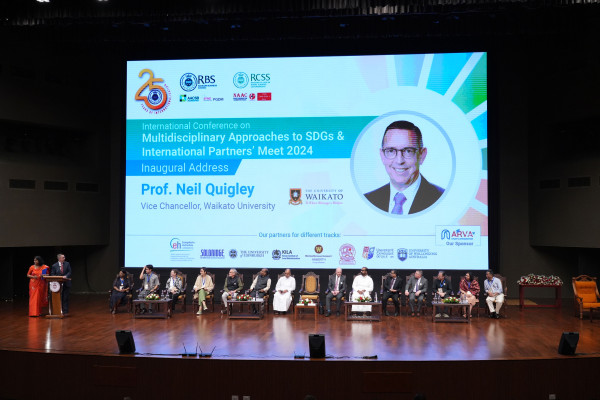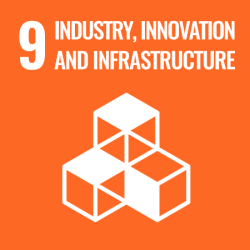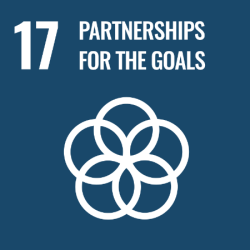
The International Conference on Multidisciplinary Approaches to SDGs was held over three days at Rajagiri College on Social Sciences in Kochi, in collaboration with Rajagiri Business School in Kakkanad.
The inaugural conference brought together 100 researchers, scholars, academics, practitioners, policymakers from across 20 universities worldwide, with delegates from government and NGOs.
The international conference is a platform for academics and industry experts to share and reflect on their progress in advancing SDGs. It aims to uncover potential global networks in specific SDG, fostering mutual learning and inspiring best practices.
Professor Quigley spoke about the University of Waikato’s research programmes that align with the SDGs and gave practical examples of the way the University has translated these goals into actions.
Every part of the University of Waikato is involved in at least one complex sustainability project, Professor Quigley said.
“Whether it’s restoring urban nature, the politics of climate change adaptation, engineers and computer scientists working on heat efficiency, retention and industrial processes, or recycling and composting,” he said.
He emphasised the University’s commitment to training students who want to practice in disadvantaged and low-income communities through its health programmes.
“Sustainability is important everywhere, but at Waikato, we have a particular interest in sustainability in those relatively poor and disadvantaged communities, as they have the least financial resources and political power.”
He shared some notable achievements against its 2019 benchmarks, such as diverting 31% of total waste from landfill, reducing water usage by 32% and achieving significant reductions in gas and electricity use and air travel.
The event focused on social work, general management, behavioural and life sciences, analytics and informatics, finance and economics, operations, marketing and human resources.

Education New Zealand Director of Engagement, East Asia and India, Jugnu Roy says the University of Waikato’s participation at the conference marks a significant stride in strengthening educational ties with India.
“As one of New Zealand’s leading institutions for teaching and research, this initiative underscores the shared commitment of the University and Education New Zealand to fostering global cooperation and networks in the domain of SDGs,” says Roy.
“Aligned with New Zealand’s focus on fostering innovation and culture exchange, this partnership between both countries is laying the groundwork for a transformative impact globally where education takes centre stage in shaping a more sustainable and equitable world.
“It further showcases the University's ongoing commitment to implementing best practices for achieving SDGs in the context of international education.”
Since Professor Quigley was appointed as Vice-Chancellor in 2015, he has led substantial change designed to improve the University of Waikato’s quality of teaching and research, leading to growth in student enrolments and a ranking within the world’s top 250 universities.
The SDGs were created in 2015 to create a future global framework to be achieved by 2030. With cross-cutting areas and synergies between different goals, discussion and action in multidisciplinary domains must be initiated.

